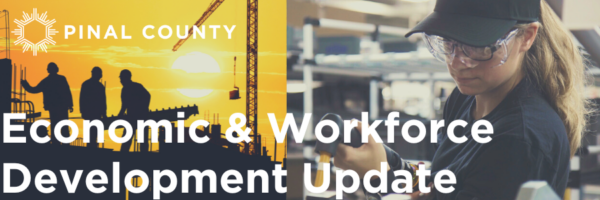
The Monday Morning Quarterback
A quick analysis of important economic data released over the last week
This week, the summary discussion will be a little broader than normal. Given that both major party candidates have now staked their ground on economic policy, I thought that deserved a comment. I will not evaluate the major party candidates’ positions. You can do that. I will, however, give you some context to help you evaluate what they are saying.
There are reasons why U.S. GDP in this cycle resembles the slow growth economies of Europe after they followed policies that are similar to those we now follow. The rate of real GDP growth in this upcycle is the slowest in American history. Why? Can this be changed? How will the continuation of this affect our standard of living?
The answer to the first question is relatively simple. Long term growth is slowed by higher taxes (both personal and corporate), heavy and inconsistent regulation, policies which hurt the level playing field that international free trade should be based upon and policies that hurt credit creation. It is those policies that got us to where we are and it will be how the winner reacts to these policies in his or her term that will determine if this will change.
People are not “evil” in the way they act (at least not most of the time). They are reacting to the economic incentives that they face. Creating incentives to invest and take risk will create different results than policies that don’t. Also, keep in mind that the government cannot spend anything that it has not taken or borrowed from the private sector.
As far as the standard of living is concerned, the lower rate of growth in real GDP translates into lower rates of growth in productivity. The slowdown in productivity will most assuredly result in a slower rate of growth in real pay (in this case, pay includes both wages and benefits). The two (productivity and real growth) are inexorably linked. If polices lead to slower productivity growth, our standard of living will not grow as rapidly as what it would have.
This is insidious. That is because you don’t see it being taken away from you. It becomes something that you would have had but didn’t. If productivity were to grow at 1.5% long term instead of 3%, a lot of people would say that’s not a big deal. But, it means that our standard of living would take 48 years to double instead of 24 years. That means that we, our children and our children’s children would have a considerably different life experience than they otherwise would have. Consider these issues when you look at the economic plans of the candidates.
U.S. Snapshot:
- Industrial production rose 0.7% in July after moving up 0.4% in June. The advance in July was the largest for the index since November 2014. Manufacturing output increased 0.5% in July for its largest gain since July 2015.
- Capacity utilization increased to 75.9% in July compared to 75.4% in June and 76.7% a year ago. This is 4.1 percentage points below its long run (1972-2015) average.
- Consumer prices (CPI-U) were unchanged in July and now stand 0.9% above a year ago. The index for all items less food and energy increased 0.1% for the month and now stands 2.2% above a year ago.
- Leading indicators increased 0.4% in July following a 0.3% gain in June and a 0.2% decline in May. This is a healthy gain.
- Privately owned housing units authorized by building permits in July were down 0.1% from June but were up 0.9% from a year ago. Single family permits were up 2.4% from a year ago (see chart below).
Arizona Snapshot:
- Arizona employment continued to do well. Year to date through July employment in the state is up 3.0%. Compared to last July, the state has gained 76,100 jobs. Professional and business services, educational and health services, trade transportation and utilities and construction lead the way. The state ranks 7th out of 50 states in terms of percentage employment growth in 2016. Despite this, the unemployment rate, which is calculated using a different survey, increased to 6.0% from 5.8% in June. This compares to 6.0% a year ago.
- Employment in Greater Phoenix is up 3.4% for the first 7 months of 2016. The Phoenix area has created 58,600 jobs since July of 2015. The fastest growing sectors mirror those of the state as a whole.
- Employment in Greater Tucson is up 3.3% for the first 7 months of 2016. The Old Pueblo has created 14,900 jobs since July of 2015. This is quite a positive turnaround for the area, with the largest gains in jobs coming in information, financial activities, educational and health services and manufacturing.
- According to R.L. Brown, July building permits were down 11.56% in the Greater Phoenix area to 1,408 permits this year compared to 1,592 a year ago. R.L. states that it really shouldn’t be a surprise that new home permit activity in Phoenix sagged a bit in July after the strong performance that they reported in June when they counted 1,939 permits. Year to date, permits are up 14.4% from a year ago.
- According to Bright Future Real Estate Research, the Southern Arizona housing market continues to do well. Permits in July were up 23.4% from a year ago and year to date permits are up 25.2% over 2015.
About EDPCo
Elliott D. Pollack & Company (EDPCo) offers a broad range of economic and real estate consulting services backed by one of the most comprehensive databases found in the nation. This information makes it possible for the firm to conduct economic forecasting, develop economic impact studies and prepare demographic analyses and forecasts. Econometric modeling and economic development analysis and planning are also part of our capabilities. EDPCo staff includes professionals with backgrounds in economics, urban planning, financial analysis, real estate development and government. These professionals serve a broad client base of both public and private sector entities that range from school districts and utility companies to law firms and real estate developers.
For more information, contact –
Elliott D. Pollack & company
7505 East Sixth Avenue, Suite 100
Scottsdale, Arizona 85251
480-423-9200











